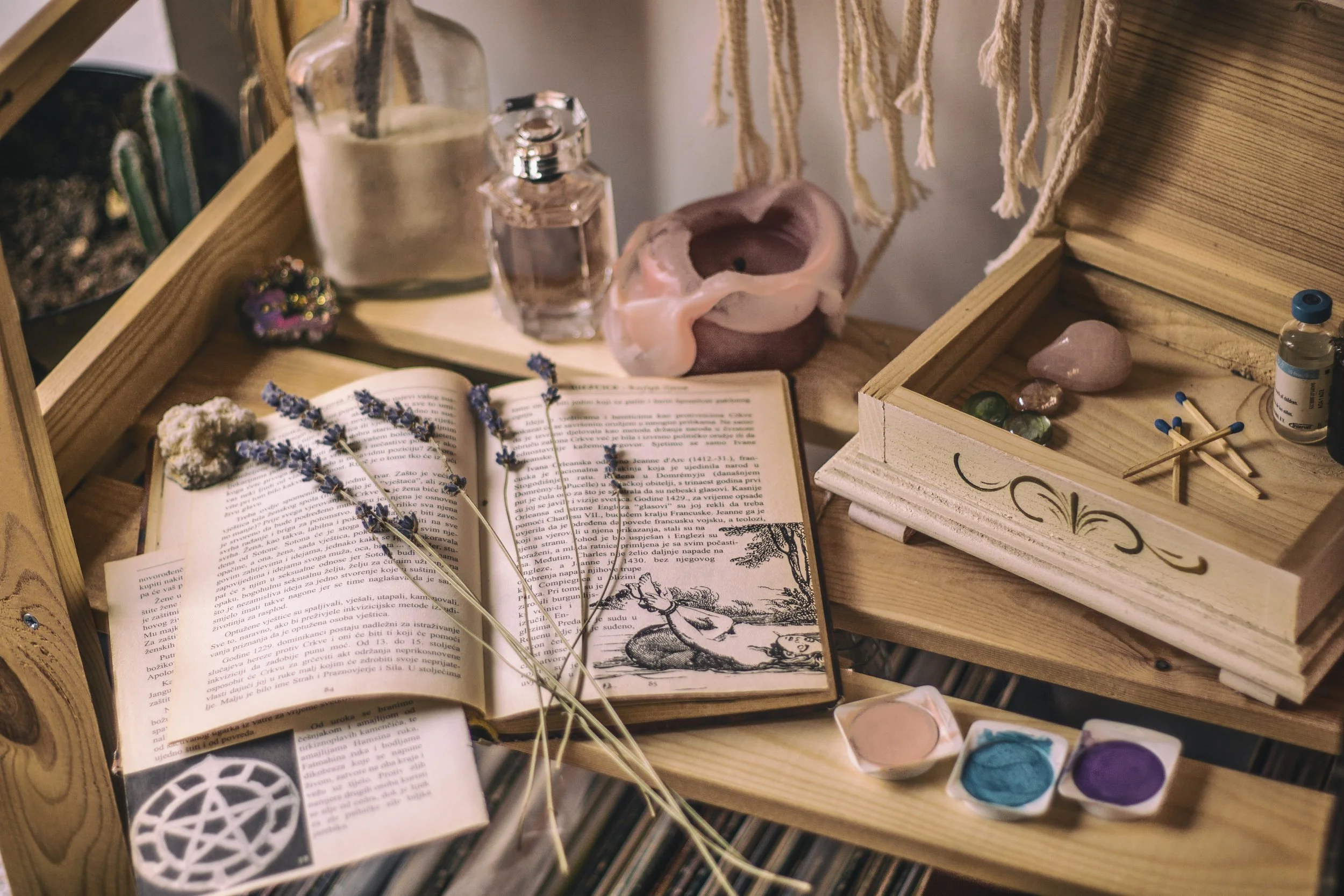7 natural remedies for anxiety and depression
By Gabby J.
I remember a moment in March 2020 when I realized that the only thing scarier than going out into the world and contracting COVID-19 was having to sit quietly in a room by myself for an indefinite amount of time. I think we can all agree that the pandemic has caused us to put our health under a microscope — no pun intended. I, myself, began focusing on my mental health. I’ve tried therapy, medications and SSRIs, but as I continue on this mental health journey, I’ve begun to wonder just how successful meds will be if I’m not putting my all into maintaining my mental well-being.
I often forget that the brain is a vital organ. In fact, it is the vital organ. Like all other organs, the brain needs to be treated well in order to function properly. You wouldn’t expect to have iron lungs if you smoked three packs a day, so why would you expect to have pristine mental health if you're not caring for your mind accordingly?
Whether you’re looking for ways to optimize your use of medication or just trying to take care of your brain the natural way, then the following information could particularly benefit you.
For the record, I would like to emphasize that everyone’s mental health journey is personal and unique to themselves. Please consult a licensed professional before making any big decisions regarding your mental health.
Physical well-being
Making sure your body is taken care of is the first step to improving your mental health. Everything you physically do (or don’t do) affects your brain. This means ensuring proper exercise, staying hydrated, taking your vitamins and getting adequate sleep. Studies show that cognitive skills can significantly decline if you are sitting too much during the day and not getting the recommended amount of sleep at night.
I personally find that my lowest mental points are when I’m not sleeping well, eating fast food a lot and partying way too often. The times when I care for myself are the times when I see the most strides in my mental health, my achievements and my overall mood.
Chat with a therapist
For many of us out there, the thought of seeing a therapist can seem rather nerve-wracking. I’ll be the first to admit that I was one of those fearful skeptics for most of my life. But once I tried it, I realized I needed all the help I could get. There are so many more accessible avenues to explore therapy nowadays if you are ready to make the leap.
If you have healthcare, the first thing I would do is go to your healthcare provider’s app or website. Next, navigate to their mental-health resources page, look over your options and schedule a consultation or appointment.
Many health care providers began to offer free virtual chat therapy due to COVID-19, which I found to be a great option while I was in college during the pandemic. While you do need to be in a secure, quiet room during appointments, this remote option is great if your daily routine requires a bit of flexibility. It’s also a great choice if you don’t have a reliable means of transportation.
Sobriety is calling
If you have ever felt “hangxiety” the day after drinking or experienced feeling snappy from nicotine withdrawals, this one’s for you. Incorporating drugs, alcohol and nicotine into your weekly routine requires your brain (and body) to constantly be in recovery mode. Whatever toxins go in must be detoxed out.
In terms of brain function, whenever you consume these things, it messes with your dopamine levels. Dopamine is the neurotransmitter in our brains responsible for feelings of pleasure, satisfaction and motivation. Once you partake in turning up, your brain will go full-fire on the dopamine until there are no more substances influencing it to keep producing it. This will result in the slowing or complete cut-off of dopamine afterward, hence the reason you may feel foggy, sad or nervous after a night out. Consistent use of drugs and alcohol heavily contribute to the development of depression and anxiety.
If you’re having trouble stabilizing your mood and have a habit of going out, you may want to rethink your drinking habits. As an ex-party-girl myself, it can be hard to hear, but it’s more difficult to control your emotions if there’s something negatively impacting your brain function. If you desperately want to quit drugs and alcohol but are struggling to do so, please contact a loved one or health care professional about ways you can find help.
Self-care
Socialization and solitude are both the key, and at times the downfall, to a successful self-care ritual. I personally have found peace in balancing friendships and alone time. For too many people, sitting all alone with no one to externally validate or entertain you can sound like a total nightmare. For people facing that specific problem, I heavily recommend taking some time to sit at home, read a book, use a facemask and take a bath. Unwinding on your own allows you to truly process and heal so you may become your best self. The longer you put that off, the worse your mental health could become.
On the contrary, if you’re someone who spends too much time alone, I recommend putting yourself out there. Once I got a taste of how lovely it was to be alone, I went into a deep isolation rabbit hole. I was no longer the party girl — I was the girl who fell off the face of the planet. Like I said, it’s a balance. Give yourself whatever you are deprived of to nourish yourself. Neither too much alone time nor over expending social energy are beneficial to your mental health. When in doubt, be sure to listen to your body.
Practice mindfulness
This concept can be a little tricky for some to understand and accomplish, but practicing mindfulness in our everyday life can do wonders. Studies suggest that mindfulness practices may help people manage stress, cope better with serious illness and reduce anxiety and depression. Many people who practice mindfulness report an increased ability to relax, a greater enthusiasm for life and improved self-esteem.
So, what exactly is mindfulness? According to the National Institutes of Health, practicing mindfulness essentially means trying to enjoy each moment by being completely aware of what is happening in the here-and-now, both within your mind and your surroundings.
Studies show that implementing mindfulness exercises may help people manage their stress, cope with traumatic events and reduce anxiety/depression. Many people who practice mindfulness say they are better able to relax, more grateful for their livelihoods and more confident.
The practice comes in many different forms: breathing exercises, yoga, meditation, going on walks, etc. It’s really about finding what’s right for you and your lifestyle. Talk to your therapist or do research on possible mindfulness techniques to find your preferred fit.
Stay clean and organized
It’s a proven fact that keeping your space (and yourself) clean and organized keeps you calm. Studies show that those who keep their space clean and orderly are more likely to get a better night's sleep and feel happier in their day-to-day lives. Those who report having a messy home are more likely to struggle with anxiety, depression and high cortisol (stress) levels. They’re even more likely to struggle with heart disease. While not everyone loves cleaning as much as I do, there’s nothing wrong with taking pride in your environment and appearance. I’ve never seen anything wrong with the approach of “look good, feel good” especially if it’s proven to have a positive impact on your mental health.
Get a pet
This one I saved for last so I may emphasize that you proceed with caution. While it is proven that spending time with a domesticated animal improves your mental health, it’s important to make sure you are mentally and physically well enough to care for your pet. It’s so important to remember that pets are living, breathing beings that have feelings and needs that they can’t fulfill on their own.
If you are a renter and you’ve decided that you’re in a good place to adopt a pet, but your landlord doesn’t allow pets on the property, don’t give up. You can talk to your therapist about obtaining an emotional support animal (ESA) letter to give to your landlord. Check your state laws and regulations regarding ESAs, but I personally have found most landlords to be accommodating, regardless of their pet policies.
Tackling your mental health head-on can be scary, but it’s worth it. Keep in mind, we are all just trying to be OK and everyone’s journey is different. It’s OK if your progress isn’t linear. In fact, it’s common! While I always encourage others to try everything out once, it’s fine if something that works for me doesn’t work for you. I wish you all well in your journey to better your mind, body and soul whether it involves natural remedies, medication or professional intervention. Be well, my friends.
Header photo by Cottonbro







